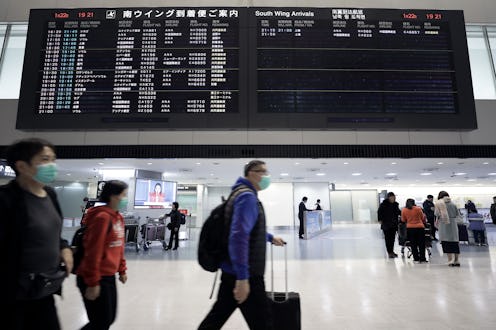
In late 2019, the Centers for Disease Control and Prevention (CDC) began monitoring a new strain of coronavirus that seemed to originate from the city of Wuhan in the Hubei Province of China. This strain of coronavirus, now referred to as the 2019 novel coronavirus, 2019-nCoV, or the new coronavirus, has so far reportedly infected over 400 people in China, including seventeen deaths. On Jan. 21, the first confirmed case of this coronavirus reached the United States, Reuters reports.
Despite the existence of this confirmed case, the risk of contagion in the U.S. is believed to be low, John Wiesman, secretary of health for the state of Washington, told CNN. According to the CDC, most people will be infected with a form of coronavirus at some point in their lives. This virus often results in upper respiratory tract illness, with the symptoms — including fever and shortness of breath — often manifesting as a common cold. Sometimes, coronavirus can lead to pneumonia or bronchitis, particularly in older people or people with impaired immune systems.
However, the 2019 novel coronavirus appears to have mutated into something new. Like so many viruses across the United States and the world, many strains of the coronavirus typically affect non-human animals but can in some cases mutate to a form that makes humans sick, as well. The data collected by the CDC on cases in China, Thailand, Japan, South Korea, and now the United States suggest that originally the outbreak was likely linked to exposure to a large market selling seafood and other animals, but since then the coronavirus has developed the ability to be transmitted between humans.
Currently, the CDC has raised its travel warning level to a two out of three, with a level one constituting regular travel precautions and three recommending avoiding nonessential travel. Level two recommends "enhanced precautions," which in this case, the CDC explains as avoiding "sick people, animals (alive or dead), and animal markets" while traveling in Wuhan. These precautions may be especially important with Lunar New Year approaching on Jan. 25, as NPR reports that people set to travel to Wuhan for the holiday are being offered free cancellations or ticket changes. On Jan. 22, the BBC reported that Chinese authorities had urged citizens not to travel in or out of Wuhan as they continue to assess the situation.
The World Health Organization is currently meeting to decide if the coronavirus should be declared an international public health emergency, the BBC reported, which could impact global travel or trade. World Health Organization Director-General Tedros Adhanom, speaking about travel bans during an Ebola outbreak in the Democratic Republic of Congo in 2019, urged the international community to "stand in solidarity with the people of DRC, not impose punitive and counterproductive restrictions that will only serve to isolate DRC." He noted that travel restrictions may increase the likelihood that people will try to travel without registering their location with health officials, which is one of the worst things that can happen during a viral outbreak.
Symptoms of coronavirus include fever and shortness of breath. If you're experiencing cold or flu-like symptoms and you've traveled to the affected area recently, the CDC advises contacting your doctor's office or emergency room and notifying them of your symptoms and travel history. Other best practices include being mindful of hygiene and contact with anyone who's sick — almost as you would during a particularly bad flu season.
Editor's note: This piece has been updated to reflect best practices in referring to the 2019 coronavirus.